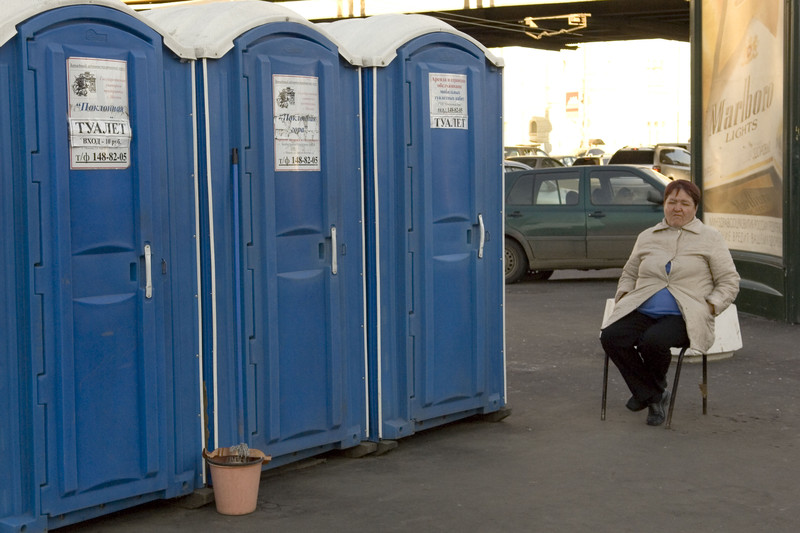EU renewing ban on sales of toilets to Russia on war anniversary


EU sanctions meant to degrade Russia’s war machine include a renewed ban on symbolic items, while letting strategic industries off the hook.
EU ambassadors negotiating the next round of sanctions in Brussels on Wednesday (15 February) pored over a 146-page long list of items that should not be exported to Russia.
The main thrust of the trade embargo, worth another €11bn a year, is to stop sales of high-tech items that can be used in Russian weapons systems.
This includes new electronics, lasers, radio equipment, software, avionics, marine cameras, and rare-earth minerals, according to documents seen by EUobserver.
The list drills into minutiae, specifying items such as “molecular beam epitaxial growth equipment” (used in nanotechnology) and “4-anilino-N-phenethylpiperidine” (a precursor for making nerve toxins).
It also designates — for the first time ever — eight Iranian firms to be added to the dual-use export ban for supplying UAVs to Russia.
The companies are the Islamic Revolutionary Guard Corps Aerospace Force, Islamic Revolutionary Guard Corps Research, the Self-Sufficiency Jihad Organization, Oje Parvaz Mado Nafar Company, Paravar Pars Company, Qods Aviation Industries, Shahed Aviation Industries, and Concern Morinformsystem–Agat.
Another part of the EU trade ban is meant to strike at Russia’s industrial capacity more broadly speaking.
This miscellaneous list includes “bidets, lavatory pans, flushing cisterns and similar sanitary ware”, as well as LEDs, hemp yarn, fork-lift trucks, mail-sorting machines, chimney pots, bricks, tyres, and even “pen nibs and nib points”.
The toilets were among items first banned last year — and now feature in the renewed list designed to enter into force by 24 February, the first anniversary of the war.
Toilets became a symbol of how Russian president Vladimir Putin’s 24-year rule has done nothing to improve Russian people’s lives when Russian soldiers began looting them, first in Georgia in 2008, and now in Ukraine — because one in five Russian homes still don’t have them.
“Let them take the toilet bowls — they’ll need them on the road — and go back home,” Ukrainian president Volodomyr Zelensky said in a speech in January.
“You know they [Russians] used to talk about their biggest dream, to see Paris and die … their dream now is to steal a toilet and die,” he also said last April.
But for all the humour it might prompt, the inclusion of symbolic items and obscure technology comes at the same time as Russia’s diamond and nuclear industries are being left off the hook yet again, risking a PR blowback.
It also invites the question why the EU has continued to export potential weapons components for the past 12 months of war.
But one EU diplomat said this was because Ukrainians had captured Russian weapons, broken them open, and told their EU allies what was inside.
Russian industry aside, the EU is also planning to add RT Arabic and Sputnik Arabic to its broadcast ban on Putin propaganda megaphones.
It is cutting four more Russian banks from the Swift international payments grid, including Alfa-Bank, Tinkoff, and Rosbank.
It is imposing visa-bans and asset-freezes on some 130 more Russian individuals.
It is banning Russian nationals for the first time from holding executive positions in “critical infrastructure” firms, such as owners of gas-storage facilities.
And it is planning to impose new fines on banks and individual bankers who help Russians to hide their wealth in the EU.
The 10th round of EU sanctions will also be discussed by foreign ministers next week prior to adoption and is still subject to change.
According to EU diplomats, the new individuals to be blacklisted mostly cover Russian “propagandists” as well as politicians, military commanders, and civil servants, whose names will be familiar only to Russia experts, seeing as all the big personalities, including Putin himself, were listed long ago.
The EU is seeking fines “not exceeding 10 percent of total worldwide annual turnover” for banks up to no good.
But it aims to cap fines for individual bankers at €50,000 in total or €5,000/day for every day of ongoing non-compliance, in a sector where annual bonuses, let alone wages, often soar way higher than that.
This story was clarified on 16 February. The original story gave the wrong impression that sales of toilets to Russia were being banned for the first time. In fact, the EU first banned them last year. The ban is now being renewed in the latest sanctions list, along with embargoes on pyrotechnic items and riot-control equipment.



